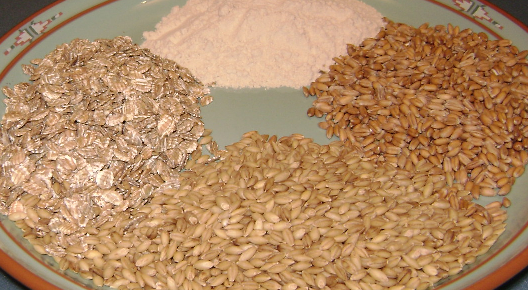Kale is a healthy cruciferous vegetable that has both anti-inflammatory and antioxidant properties, making it a good candidate for combating chronic diseases. It also contains lots of vitamins and minerals. However, one downside of kale and other cruciferous vegetables is that they contain goitrogens. Goitrogens are said to be disruptive to your iodine intake, consequently interfering with the function of your thyroid gland and possibly causing hypothyroidism. However, this is just the theory. Can kale cause thyroid problems? Read on to find out the real correlation between kale and thyroid problems.

Will Kale Cause Thyroid Problems?
Medical evidence doesn’t point towards kale as a trigger for thyroid conditions. Generally, a person with no pre-existing thyroid-related concern should not be affected by eating kale. Because iodine deficiencies are very uncommon nowadays, it’s actually highly unlikely that you will develop thyroid problems if you eat kale or other cruciferous vegetables.
For thyroid patients, on the other hand, there is a very minimal chance for your condition to worsen due to kale consumption, as long as you don’t consume excessive amounts. To be safe, if you have thyroid problems and you still want to ingest kale, you might want to consult your doctor about your concerns and ask him how you can monitor your condition properly.
If there were to be any concerns about kale and thyroid problems, they would probably be for people who have a higher risk of developing a deficiency in iodine. These people include vegans and vegetarians because of their diet, as well as pregnant and breastfeeding women. They are encouraged to take supplements to remedy this deficiency.
How to Eat Kale Without Causing Thyroid Problems
Although it is not known exactly how much kale can be considered too much and can cause negative health effects, studies have shown that eating 150 grams of cruciferous vegetables for four weeks does not have any adverse effects on your health. Extending this towards all other cruciferous vegetables, it can perhaps be assumed that eating a fairly moderate amount is still considered to be in the safe zone.
So don’t be too afraid of kale, but just make sure to keep an eye on your iodine and selenium intake. For adults, the recommended daily values are 150 micrograms a day for iodine and 55 micrograms a day for selenium. Iodine is contained in sea vegetables and, of course, iodized salt. Meanwhile, selenium can be found in nuts, beans, seeds, and whole grains.
You can also take the following dietary precautions to avoid developing thyroid problems:
- Cook kale. Although kale is edible even in its raw form, it’s better to cook it before eating it to minimize its goitrogenic properties.
- Don’t eat kale every day. Mix things up and make sure you have a good balance of cruciferous and non-cruciferous vegetables in your diet. This will help you stay away from any potential issues with kale and thyroid problems.
- Take your vitamin C in moderation. Having too much in your system may prompt your body to turn it into oxalate.
- Drink lots of water. The standard is at least ten 4-ounce glasses every day. You can also keep yourself hydrated with other fluids, but water will always be the best choice.
- Monitor your calcium intake. Eat some dairy products to meet the 1,200 mg recommended daily allowance. Stay away from too much salt and animal protein.
What Are the Other Foods That May Affect Your Thyroid?
1. Gluten
 Thyroid problems are often caused by autoimmune diseases, which in turn are often caused by gluten. It causes certain body parts to swell up, and in some cases, it stimulates the production of antibodies that break down organs and tissues. Therefore, beside worrying about kale and thyroid problems, you may need to cut down on gluten, which is found in barley, rye, wheat, and some processed food.
Thyroid problems are often caused by autoimmune diseases, which in turn are often caused by gluten. It causes certain body parts to swell up, and in some cases, it stimulates the production of antibodies that break down organs and tissues. Therefore, beside worrying about kale and thyroid problems, you may need to cut down on gluten, which is found in barley, rye, wheat, and some processed food.
2. Dairy Products
 If you are intolerant to dairy products, they may create inflammation in your body. For example, you may meet irritable bowel syndrome, as well as reflux and bloating. Dairy contains casein which is another trigger for autoimmune diseases. Thus your thyroid may be affected.
If you are intolerant to dairy products, they may create inflammation in your body. For example, you may meet irritable bowel syndrome, as well as reflux and bloating. Dairy contains casein which is another trigger for autoimmune diseases. Thus your thyroid may be affected.
3. Sugar
 Like gluten and dairy, sugar increases your chances of contracting autoimmune diseases. This is because it fosters an ideal environment for the growth of harmful pathogens in your stomach, which can then lead to infections. Instead of pure sugar, try natural sweeteners like xylitol, or food like honey and maple syrup. You can also take glutamine to repair any damages sugar may cause in your gut.
Like gluten and dairy, sugar increases your chances of contracting autoimmune diseases. This is because it fosters an ideal environment for the growth of harmful pathogens in your stomach, which can then lead to infections. Instead of pure sugar, try natural sweeteners like xylitol, or food like honey and maple syrup. You can also take glutamine to repair any damages sugar may cause in your gut.
4. Industrial Seed Oils
 Vegetable oils such as corn, sunflower, soybean, canola, and grape seed are rich in damaged, oxidized polyunsaturated fats which only get worse if you heat the oils and use them for cooking. Damaged fats can lead to inflammation. They can act as free radicals to damage your organs and tissues, including thyroid. To avoid this, opt for healthier fats like olive, avocado, and macadamia nut oil.
Vegetable oils such as corn, sunflower, soybean, canola, and grape seed are rich in damaged, oxidized polyunsaturated fats which only get worse if you heat the oils and use them for cooking. Damaged fats can lead to inflammation. They can act as free radicals to damage your organs and tissues, including thyroid. To avoid this, opt for healthier fats like olive, avocado, and macadamia nut oil.
